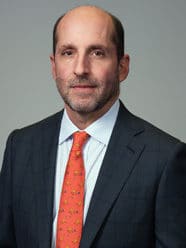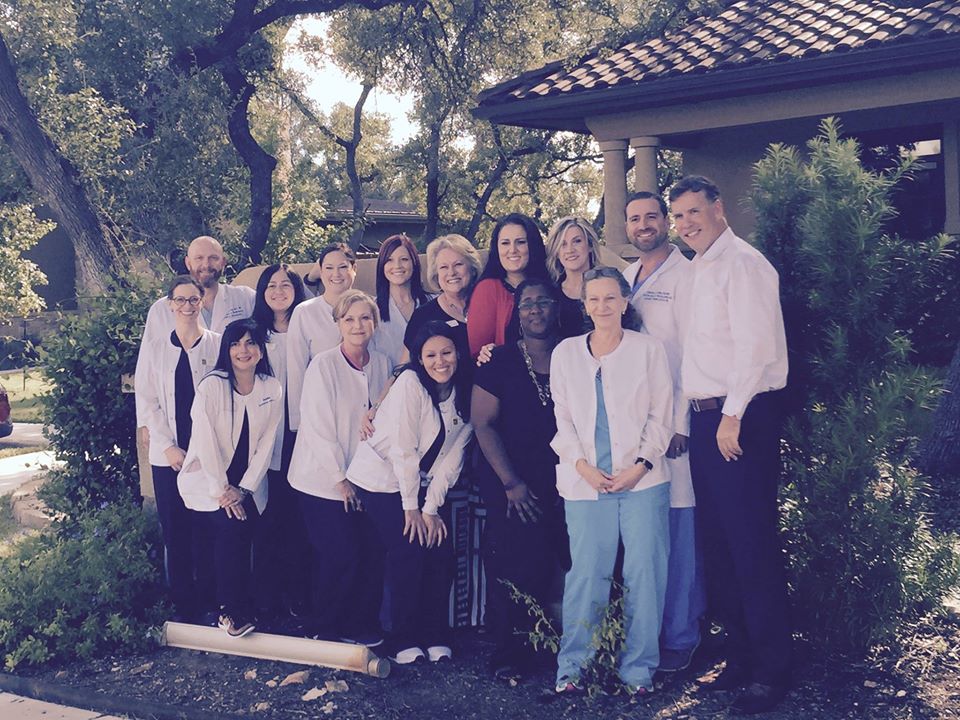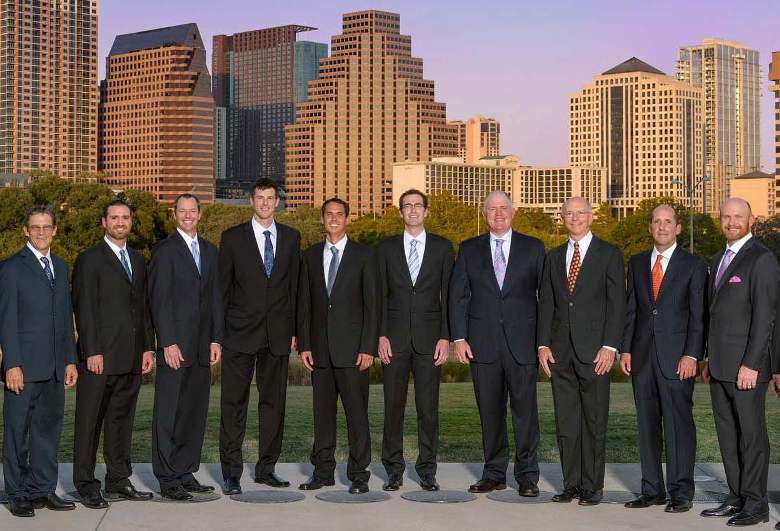Checkout Dr. Thomas S. Weil, DDS, MD Watch Video
Dr. Thomas S. Weil is a diplomate of the American Board of Oral and Maxillofacial Surgery and a Fellow in the American Association of Oral and Maxillofacial Surgeons. After receiving his Bachelor of Arts degree from Tulane University in New Orleans, Dr. Weil began his professional education at Baylor College of Dentistry where he graduated at the top of his class. He then attended the University of Texas Health Science Center at San Antonio where he earned his medical degree, also graduating with Honors. He remained in San Antonio to complete a General Surgery internship, his anesthesia training and the remainder of his specialty training in Oral and Maxillofacial Surgery.
DENTAL IMPLANTS
Implants are recommended over other reconstructive techniques for several reasons. It is not beneficial to sacrifice the structure of surrounding teeth to bridge a space. In addition, removing a denture or a “partial” at night may be inconvenient. Also, dentures that slip can be uncomfortable and rather embarrassing.
A Swedish scientist and orthopedic surgeon, Dr. Per-Ingvar Branemark, developed this concept for oral rehabilitation more than 35 years ago. With his pioneering research, Dr. Branemark opened the door to a lifetime of renewed comfort and self-confidence for millions of individuals facing the frustration and embarrassment of tooth loss.
WISDOM TEETH REMOVAL
About 35 percent of the population is born without wisdom teeth, ensuring the rest of us, at some point, must decide to either let our wisdom teeth grow in, which can lead to complications, or have them removed. Wisdom teeth are the last adult teeth to come into the mouth. Most people have four wisdom teeth at the back of the mouth—two on the top, two on the bottom.
When your wisdom teeth become impacted due to overcrowding, this can present an oral health problem. In addition, wisdom teeth can be hard to clean, so they may be more vulnerable to tooth decay and gum disease than other teeth. When they have erupted partially, the opening around the teeth allows bacteria to grow and will eventually cause an infection, resulting in swelling, stiffness, pain, and illness. At Austin Oral Surgery, we strive to provide quick, painless removals of wisdom teeth. We can ensure you feel at ease during the procedure and help to maintain your oral health for years to come.
Why should wisdom teeth be removed?
A common problem with many wisdom teeth is they are often impacted or do not fully emerge from the gum line, potentially leading to serious oral infections or causing damage to surrounding teeth.Many patients report a cessation of ongoing discomfort in their mouth after having their wisdom teeth pulled, and the process itself is entirely painless. Contact us now for more information.
TOOTH EXTRACTION
Maintaining proper oral health is important not only to keep a white smile but also to ensure oral diseases don’t spread between your teeth and gums. While most people understand the importance of brushing and flossing on a regular basis, you may not recognize the signs of an impacted tooth that needs to be extracted. These symptoms include:
- Overcrowded teeth that have grown too large or too close to fit comfortably in your mouth
- Severely cracked or damaged teeth
- A diseased tooth with a damaged or infected pulp base
In each of these cases, we’ll perform a thorough examination of your teeth and gums to determine if extraction is warranted. In the case of an impacted tooth, your dentist may need to cut away some gum tissue to properly remove the tooth. If a tooth is damaged or infected, a root canal may be needed to ensure infection doesn’t spread to the rest of your healthy teeth. Contact us today for more information.
The tooth removal process
On the day of your tooth removal, we’ll perform a thorough exam to ensure your mouth is stable and ready for the procedure. This exam may include an X-ray. Once we’ve sedated and numbed your mouth, the oral surgeon will cut away some of the gum surrounding the impacted tooth before gently pulling it from your jaw. After cleaning the wound, your dental surgeon will use gauze and most likely stitch the incision shut. You should feel no pain during the process. Many patients say they feel relief from the ongoing discomfort caused by the impacted tooth. After the procedure, you’ll be asked to avoid smoking, drinking alcohol, or eating solid food for at least 24 hours. Pain medications and antibiotics may be prescribed to you for this time as well. If you experience any ongoing discomfort or bleeding, we ask you contact us immediately for a follow-up examination.
SLEEP APNEA
Sleep apnea is a common disorder that occurs when a person’s breathing is interrupted or ceases during sleep. In most instances, the person is unaware of these breathing cessations, as they do not prompt a complete awakening. Types of sleep apnea include:
- Obstructive sleep apnea (OSA) – Caused by an airway blockage, most often when the soft tissue in the back of the throat collapses during sleep
- Central sleep apnea – No airway blockage, but the brain fails to signal the muscles to activate breathing
- Mixed sleep apnea – This is a combination of both obstructive and central sleep apnea
Patients at risk for sleep apnea are typically male, overweight, and age 40 or older and may have a large neck, tonsils, tongue, or jaw bone. Genetics also plays a factor in being susceptible to sleep apnea, with conditions like deviated septums, allergies, and sinus issues often inflaming the issue. At Austin Oral Surgery, we’ve built a reputation for effectively diagnosing and treating patients with sleep apnea. We can help you breathe easier and have a more restful sleep. Contact us now for more information.
How is sleep apnea treated?
Obstructive sleep apnea is treated with a multi-step approach that involves a thorough evaluation by a sleep specialist who collects patient history and performs a physical exam followed by a sleep study. The sleep study provides an understanding of the severity of sleep apnea you may be suffering from and a guideline for future treatment. Depending on the severity of sleep apnea, multiple treatment options are available. Treatment options include:
- Fostering a healthier diet and exercise to lose weight
- Using a continuous positive airway pressure (CPAP) device while you sleep
- Using a sleep apnea dental device
- Corrective surgery for a deviated septum, enlarged tonsils, or an overbite or underbite
TMJ DISORDER
TMJ or temporomandibular joint dysfunction is often used generically to describe pain in the joint or jaw region that may be accompanied by a decrease in the ability to open your mouth, popping or clicking when opening and the inability to chew solid foods without discomfort. True temporomandibular joint dysfunction is due to misalignment or degeneration of structures within the joint.
FACIAL TRAUMA
Facial Injury Surgery
Injuries to the mouth, face and jaw are considered facial trauma. Whether the result of a motor vehicle accident, a sports mishap, interpersonal violence or a work-related accident, maxillofacial injuries can present patients with a high level of both physical and emotional trauma. Austin Oral Surgery’s team of surgeons provides emergency care and acute treatment, as well as long-term reconstruction and rehabilitation for a complete scope of facial injuries, specifically:
- Facial lacerations
- Oral lacerations
- Avulsed (knocked out) teeth
- Fractured facial bones (cheek, nose or eye socket)
- Fractured jaws (upper and lower jaws)
- Dislocated jaws
Treating patients with facial trauma is an art and science that demands special training and a solid understanding of how treatment will affect your long-term function and appearance. Austin Oral Surgery’s surgical team is extensively-trained in every aspect of facial trauma reconstruction and ensures that the highest quality of care is delivered to each and every patient.




